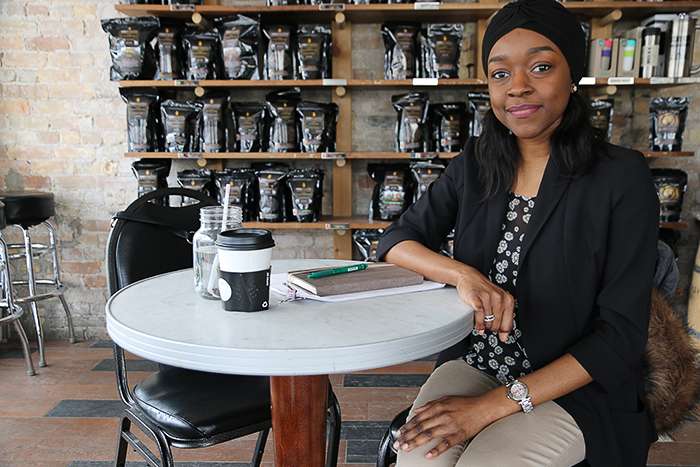Study suggests that 'culture shock' is a key stressor for refugees

Hawazin Alhawsaw sees culture shock as a normal part of the acculturation process for Arab refugees settling in Canada.
Alhawsaw, a master's student in Nursing, was talking with a friend about her struggles as a refugee to feel part of her new home. These questions about acculturation – or combining one culture with another – became the seed of her research study, "An Incomplete Jigsaw Puzzle: A Narrative Study On Arab Refugees In Canada."
In the past, studies have attributed symptoms of mental-health disorders to the collective violence refugees experienced in their homeland. However, Alhawsaw argues the stress of the acculturation process also contributes – and sometime contributes greatly – to these issues.
"Most of the studies say exposure to collective violence will lead to psychological disorders among refugees. But what I found is, yes, those refugees suffer from mental-health problems or psychological disorders, but not totally related to collective violence. It is related to the acculturation process because it is a stressful process to acculturate."
When the Arab refugees she interviewed first learned they were coming to Canada, they were happy and felt safe; however, when the realities of their new home set in, they were disenchanted.
"They were happy because they fled from the war and they had a safe place. But then they arrive here and everything is different. They went through to the other stage of culture shock, which is the crisis stage. They say, 'We are depressed. We are isolated.' It is really like those exposed to shock."
During the interviews, Alhawsaw noted more negative responses among the male participants. This was largely due to the shift in gender roles and family dynamics. Particularly, the men described a loss of authority in Canada as they were used to living in a patriarchal society. The women were happier because they had more independence and rights in Canada.
"I was shocked by the reality," said one man in her study. "I felt there is no point in what I am doing and my emotional state was getting worse. I was shocked: Is this the Canada I was dreaming of? That is impossible."
The refugees also expressed concerns about childrearing in a Canadian context.
"Canada is a foreign country with different customs and traditions from Arabs. I am worried about my children and their future – what will they face? Everything is mysterious," said one mother.
Further study is needed to examine how what Alhawsaw describes as "ambiguous loss" – real or presumed death of a family member, or separation from community in a war-torn country – prevents or inhibits acculturation in Canada.
Of the 12 adult refugees she spoke to, all of which had been in Canada for three to five years, only one had received full-time employment during the time of the study. The participants, who hailed from Iraq, Lebanon, Syria and Palestine, experienced significant challenges in assimilating into Canadian culture, with the primary barriers being language, communication and employment.
"According to them, finding a job and mastering the language was successful acculturation," she said. "They say, 'no one appreciates our educational background or professional experience.' When they arrived here… they had to start from zero.
"Most say they don't want to be a burden to the government."
Needing to understand and master the language was the primary goal, as it opened doors to employment and had various social advantages.
The refugees also wanted to feel a sense of belonging, she noted. Some tried to create a new identity in Canada because they felt they had lost their previous identity, but others were unable to do this successfully, she explained.
"We tell them this (culture shock) is a normal condition and you have to pass through this, and finally you are going to build or create a new identity," she said.
If social determinants, such as achieving employment, housing or mastering the language, are achieved, refugees would be able to acculturate, she continued. When it comes to how long this process can take, Alhawsaw said "it depends on the individual themselves."
Canadian citizens have a role to play in assisting with this process, including offering empathy and providing opportunities for refugees to participate in social activities and employment.
For nurses, Alhawsaw sees the frontline workers as being able to identify culture shock and connect refugees with the necessary support services to help them address their specific needs.
"As a nurse or a health-care provider, we have an important role in helping these refugees by helping them understand what they pass through is a normal condition and finally they will acculturate," she said.
Provided by University of Western Ontario















